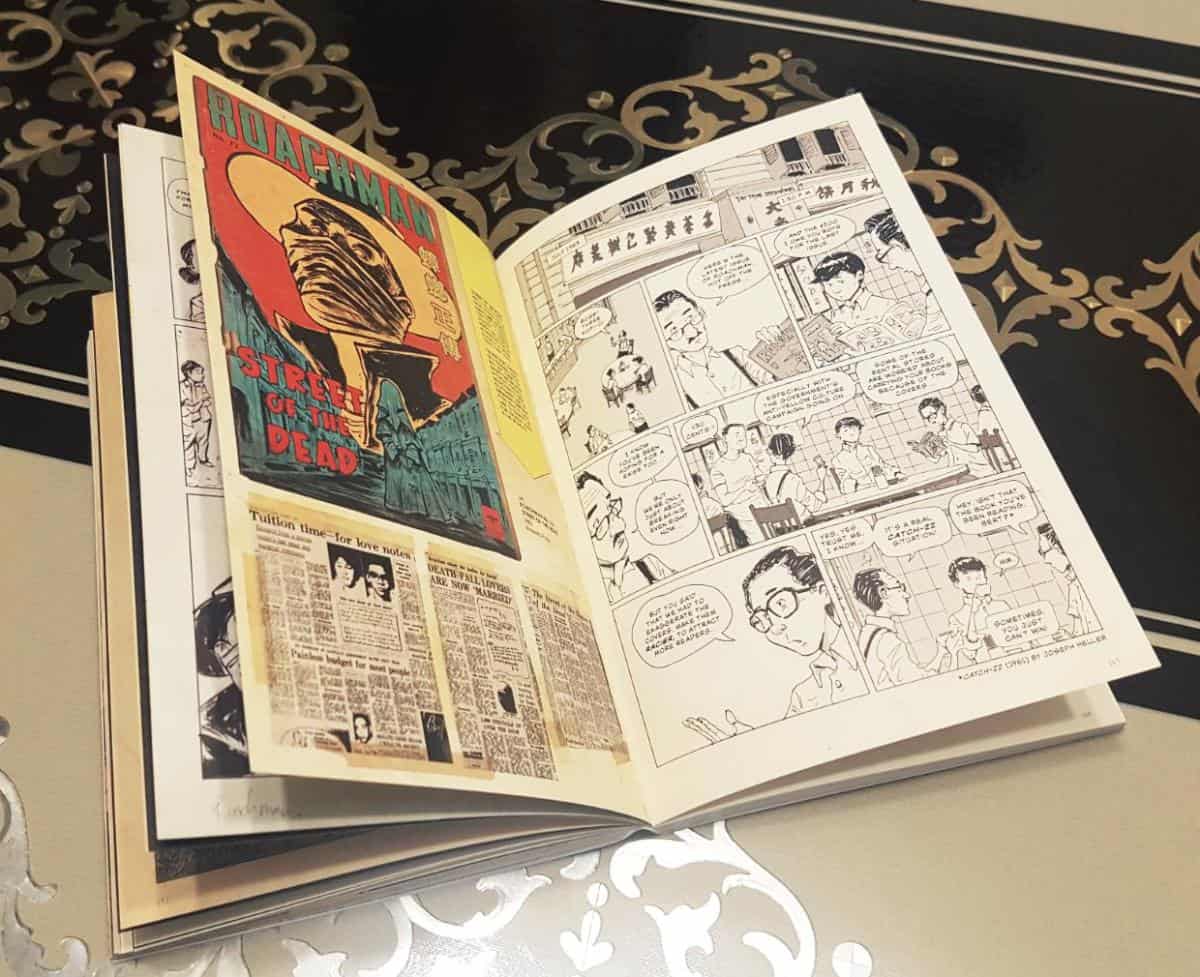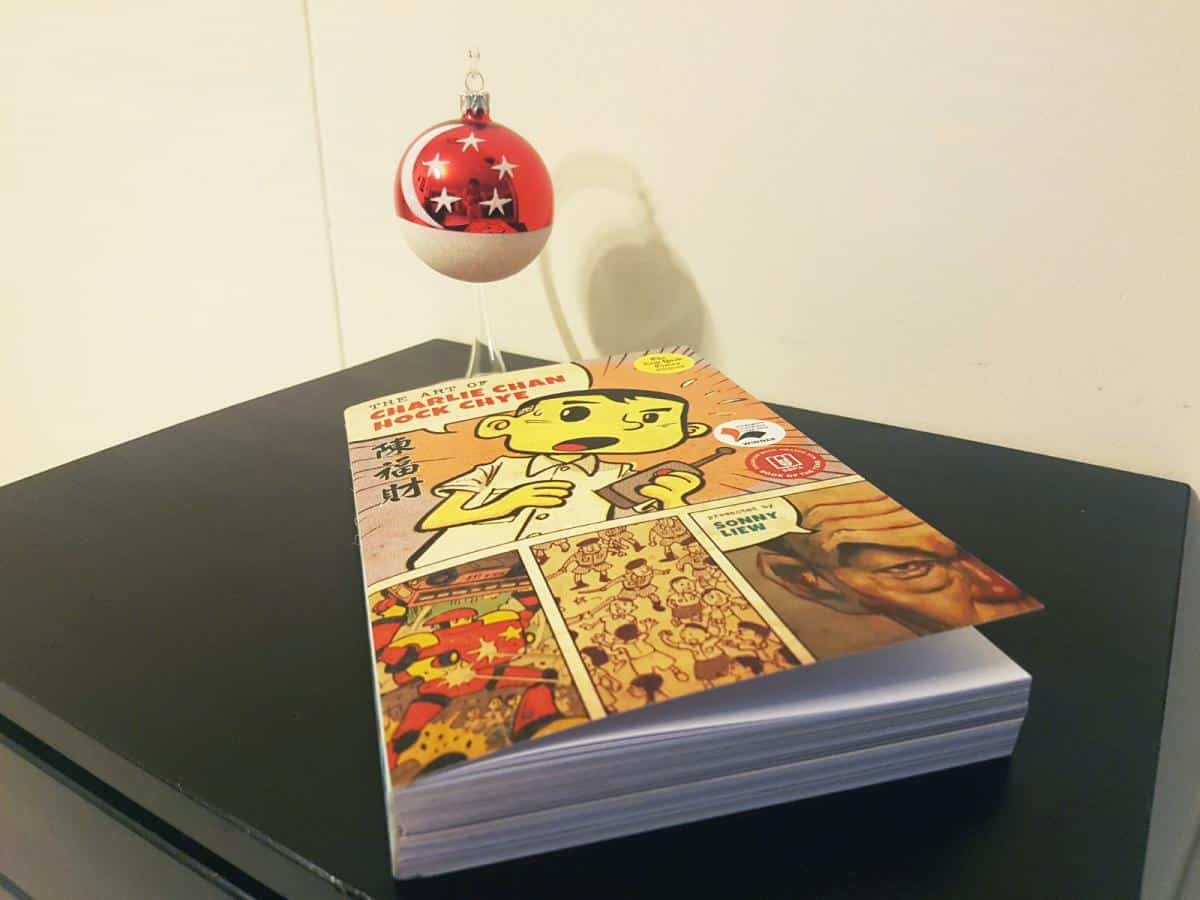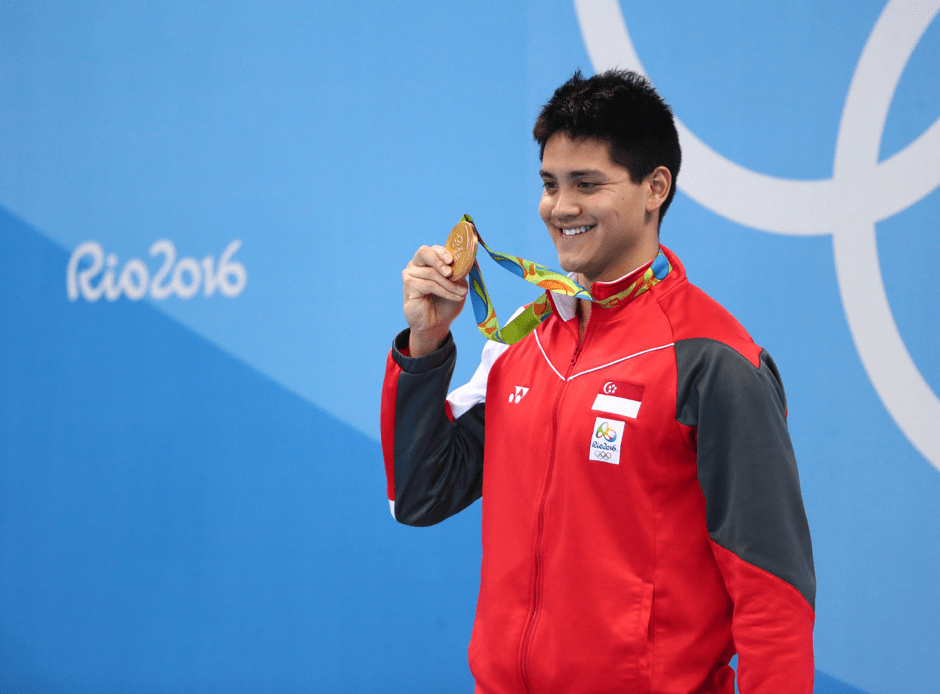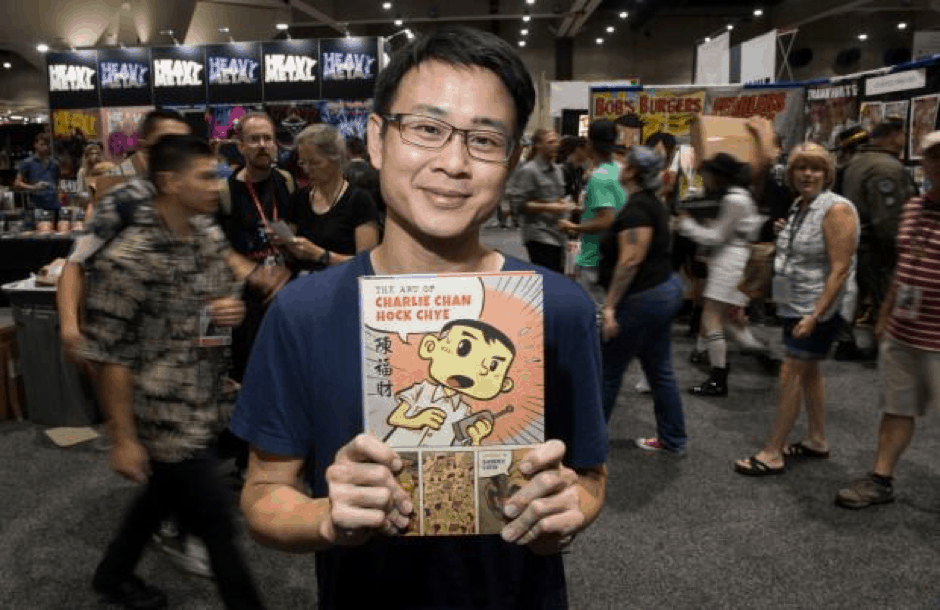A Singaporean has won the Oscars of the comic book world, but his win has still managed to get embroiled in controversy.
Picture Courtesy of Isaac Neo
Last week, a Singaporean made a super heroic (and historic) feat.
Sonny Liew, a local graphic novelist, became the first ever Singaporean to win an Eisner Award. For those unfamiliar with what an Eisner is, it’s the comic book equivalent of the Oscars.
Sonny bagged not one, not two, but three awards for The Art of Charlie Chan Hock Chye, a controversial politically themed graphic novel that told a semi-fictional story of Singapore’s formative years.

Picture Courtesy of Isaac Neo
Nevermind that he’s worked on big titles such as Wonder Woman, GI Joe or Doctor Fate. In Singapore, you gotta win something to be noticed, and that’s precisely what happened as Sonny became a superstar overnight.
However, his celebratory achievement got overshadowed by a congratulatory Facebook post by the National Arts Council (NAC), with whom he’s had a tumultuous history with.
TLDR; Sonny gets funding from NAC, NAC lifts funding due to political nature of book, Sonny publishes book, Sonny wins award, NAC congratulates Sonny, Pitchforks are sharpened.
Like a page lifted off the panels of a comic book, the National Arts Council became a supervillain overnight in the eyes of Singaporeans as it received 320 unhappy shares and 79 angry reacts (as of writing).
Don’t get me wrong, what the NAC did was in relatively poor taste. As many have pointed out, congratulating Sonny is like kicking your child out, and celebrating when he wins the Nobel prize.
However, we need to realise that while it feels good to take it out on the NAC right now, it is not going to help Sonny in the long term.
The Joseph Schooling Effect
For one, all of this is nothing new. In fact, we’ve seen this all before, albeit in a different shape and size.
I present to you, the Joseph Schooling effect.
When Joseph Schooling became the first Singaporean to win an Olympic Gold medal, virtually every organisation, company and corporation jumped on the bandwagon to celebrate the 22 year-old’s achievement.
Books were written. Grab Car Promo codes were created. KFC and Pizza Hut gave out free food. SIA bought him a cake, and his face was plastered all over Facebook.
Heck, even a train was dedicated after him.
There is, however, a common denominator among the things I just listed. None of these companies had anything to do with his success.
At least to my knowledge, I doubt fast food restaurants were the diet of choice for the Olympian, nor were jewelry the preferred fashion accessory for Schooling.
Nonetheless, in this age of likes, shares and public relations, I guess you’ve gotta do what you got to do.
While what the NAC did may justifiably infuriate Singaporeans who have been following the saga, this isn’t the first time a public body has swooped in to celebrate the achievement of a Singaporean.
Perhaps NAC was feeling a little FOMO, seeing as to how there was pressure from various media outlets over their purported silence.
In their defense, being one of the leading arts statutory agencies, the NAC was just doing what most Singaporean organisations had to do and would have done.
Also, to be fair, they never took credit for Sonny’s work. There might be a tinge of saltiness, but at the core of it, all they did was congratulate a Singaporean who had achieved something.
Make A Statement:
So, while it’s easy to hate on NAC, we shouldn’t let this shift attention away from Sonny Liew or other comic book producers like him.
Despite all the struggles he faced, and the little resources he had, he still managed to Batman his way into winning the top international accolade in the comic book industry.
Perhaps, that act in itself is the greatest statement to NAC.
However, there’s an even greater statement to be made. As we all know, print is dying – and that includes comic book industry, of which Sonny is a huge part of.
If you really want to make Sonny the hero, buy his books. Make them sold out. Empty the shelves. Create a tangible demand and show society that Singaporeans enjoy the kind of seat-shifting and controversial work that Sonny brilliantly produced.

This not only sends a strong message to the NAC, but other private publishers and aspiring creators that maybe once in awhile, it is okay to push the envelope.
Because at the end of the day, a couple of angry reacts and unhappy Facebook posts are not going to change policy.
Instead, showing that eyebrow raising creations like Sonny’s can thrive in Singapore could just be enough to flip a page in society’s book.






















